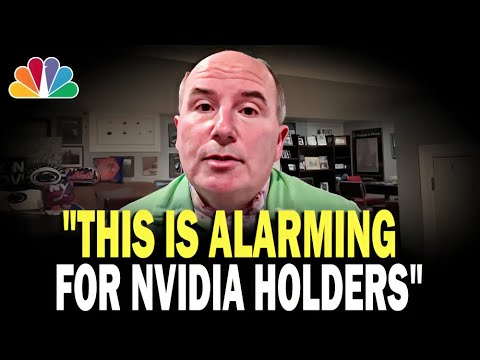In the video, Dan Ives discusses Nvidia’s pivotal role in the AI revolution, highlighting its significant economic impact and the leadership of CEO Jensen Huang, while also addressing the company’s challenges in the Chinese market. Marvin Low adds insights on market volatility and the importance of understanding cash flows, emphasizing long-term investment opportunities in disruptive technologies like AI despite short-term uncertainties.
In the video, Dan Ives discusses the evolving landscape of Nvidia and its impact on the tech market, emphasizing the significant multiplier effect of Nvidia’s chips, which can generate $8 to $10 for every dollar spent. He highlights the leadership of Jensen Huang, Nvidia’s CEO, in driving the AI revolution, suggesting that we are only at the beginning of this transformative era. Ives believes that the tech market is poised for continued growth, likening the current phase to being at 9 PM in an AI party that will last until 4 AM.
The conversation shifts to the broader market context, where Marvin Low, a senior global macro strategist at State Street, shares insights on the current volatility and uncertainty in the market. He notes that while there have been bearish trends, some analysts are optimistic about a potential rebound. Low explains that the market is starting to understand various outcomes related to trade and tariffs, which has led to a decrease in volatility as investors adjust their positions.
Low elaborates on the importance of understanding cash flows and the challenges analysts face in predicting market movements amid uncertainty. He emphasizes that disruptive technologies, like AI, represent long-term investment opportunities, despite the risks associated with short-term volatility. He encourages investors to consider the potential of companies that are well-positioned to benefit from these technological advancements.
The discussion also touches on Nvidia’s challenges in the Chinese market, particularly regarding new energy efficiency regulations that could impact a significant portion of its revenue. Analysts express confidence in Nvidia’s ability to navigate these geopolitical challenges, but they also highlight the growing competition from domestic Chinese firms like Huawei. The situation underscores the delicate balance Nvidia must maintain in its business dealings while addressing the complexities of US-China tech relations.
As the video concludes, the focus shifts to the upcoming earnings season and how companies are managing their capital and personnel budgets amid uncertainty. Low notes that earnings expectations remain solid, reflecting the resilience of American corporations. However, he stresses the importance of understanding how these companies will respond to external pressures, particularly from the government and global market dynamics, as they prepare for future challenges.
